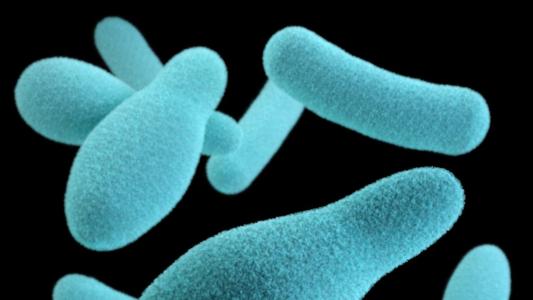A new pancreatic cancer vaccine based on mRNA tech was shown to be safe and capable of triggering an immune response in a small trial — hugely encouraging news in the fight against this particularly deadly cancer.
The challenge: On the surface of the immune system’s T cells are molecules, called “checkpoint proteins,” that recognize proteins on the surfaces of healthy cells. This tells the immune system not to attack because the cell is a friend, not a foe.
Some cancers take advantage of this system by making the proteins that convince T cells they’re harmless, letting the cancer grow unchecked. Drugs called “immune checkpoint inhibitors” block the checkpoint proteins, essentially taking the brakes off the immune system.
“This is the first demonstrable success … of an mRNA vaccine in pancreatic cancer.”
Anirban Maitra
That means the T cells no longer see cancer cells as friends, but they also don’t automatically view them as foes. For that to happen, the T cells also need to see something that tells them that the cancer cell is dangerous and needs to be attacked.
Often, this danger signal is something called a neoantigen, a type of mutated protein that only appears on the surface of cancer cells. Pancreatic tumors don’t express as many neoantigens as other cancers, though, which is one theory about why checkpoint inhibitors aren’t as effective against pancreatic cancer, which is extremely deadly and hard to treat.
The idea: German drug developer BioNTech, which developed one of the first successful COVID-19 vaccines with Pfizer, has now trialed an mRNA vaccine to help the immune system fight pancreatic cancer, when combined with a checkpoint inhibitor — and it showed incredible promise in this small study.
“This is the first demonstrable success — and I will call it a success, despite the preliminary nature of the study — of an mRNA vaccine in pancreatic cancer,” Anirban Maitra, a pancreatic cancer specialist at the University of Texas, who was not involved in the study, told the New York Times. “By that standard, it’s a milestone.”
None of the eight people who responded to the pancreatic cancer vaccine showed signs of their cancer returning.
The trial: During the study, 16 people with the most common type of pancreatic cancer, pancreatic ductal adenocarcinoma (PDAC), had their tumors surgically removed and analyzed. A personalized pancreatic cancer vaccine was then developed to train the immune system to recognize up to 20 neoantigens identified in their tumor cells.
About nine weeks after surgery, participants were treated with the checkpoint inhibitor atezolizumab before their personalized vaccine was administered intravenously. Four weeks later, they started a six-month chemotherapy regimen before receiving another vaccine dose.
After the initial vaccination, 8 of the 16 participants had T cells capable of recognizing the cancer neoantigens in their blood, and 4 patients had T cells for multiple neoantigens. Chemotherapy can sometimes suppress the immune system, but these T cells were not affected.
Nearly 80% of pancreatic cancer patients experience recurrence around 14 months after surgery and chemo.
In the 18 months after surgery, none of the eight people who responded to the pancreatic cancer vaccine showed signs of their cancer returning. Among the participants who didn’t respond to the vaccine, recurrence occurred at a median of 13.4 months, and only two non-responders didn’t have their cancer return at all during the study.
For context, nearly 80% of pancreatic cancer patients experience recurrence around 14 months after surgery and chemotherapy, according to BioNTech’s paper.
Looking ahead: Side effects during the trial were minimal, with just one participant experiencing a fever and hypertension that qualified as “severe.” The trial suggests BioNTech’s pancreatic cancer vaccine is safe, but larger trials are now needed to prove its efficacy.
While the data on remission was very encouraging, this trial was only designed to study the vaccine’s safety and whether it provoked an immune response, not efficacy against cancer returning. Because there wasn’t a control group that received only the checkpoint inhibitor, we can’t say for sure how much the vaccine extended the cancers’ remission.
Larger efficacy trials could also explore potential reasons the personalized vaccine only worked in 50% of participants. Those who didn’t respond had less diversity in their tumor neoantigens, so that could have played a role. It’s also possible that the removal of some patients’ spleens along with their tumors could have affected the vaccine’s efficacy.
If the BioNTech team can figure out the reason, they might be able to tweak the mRNA vaccine to work in a greater percentage of pancreatic cancer patients — offering new hope to those battling the deadly disease.
We’d love to hear from you! If you have a comment about this article or if you have a tip for a future Freethink story, please email us at tips@freethink.com.






